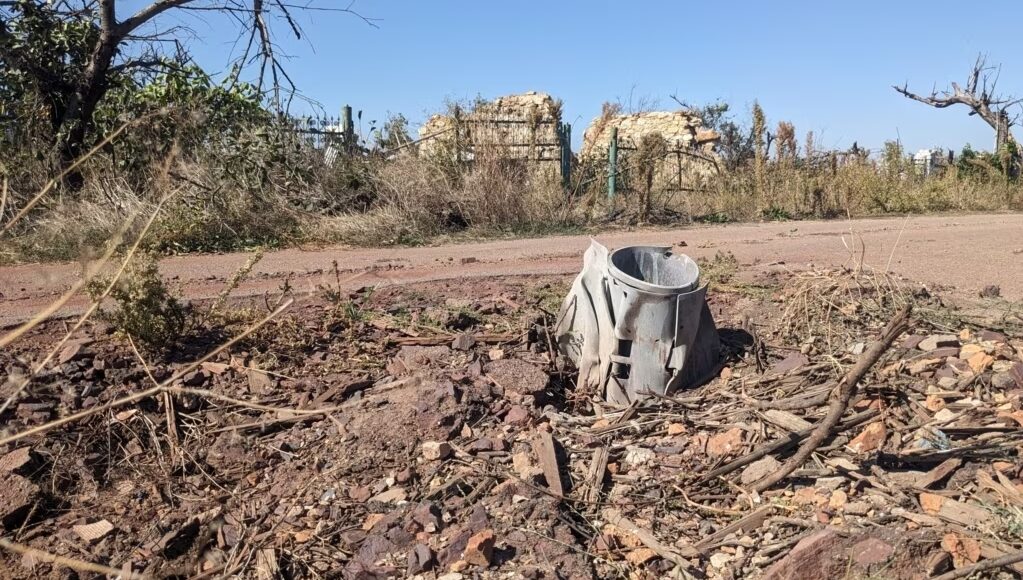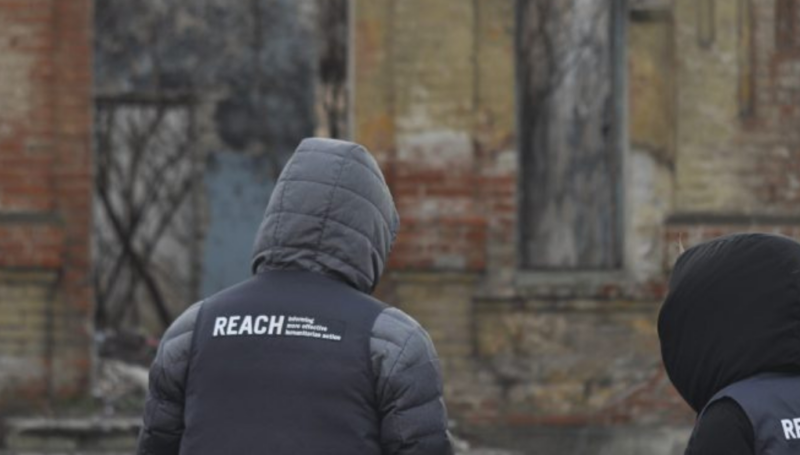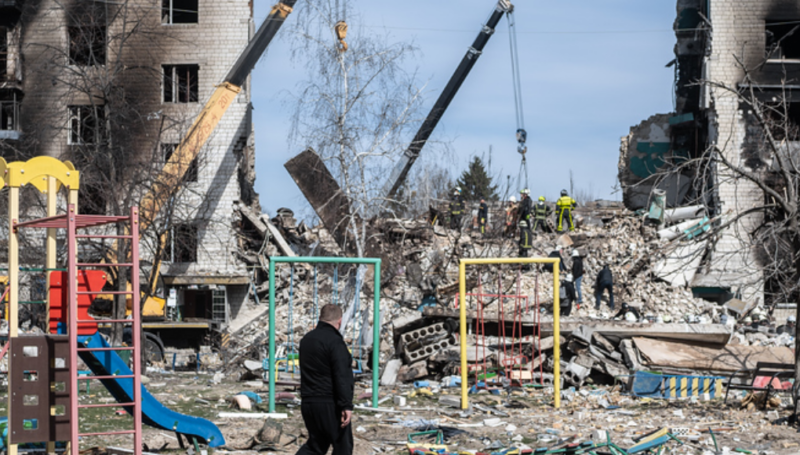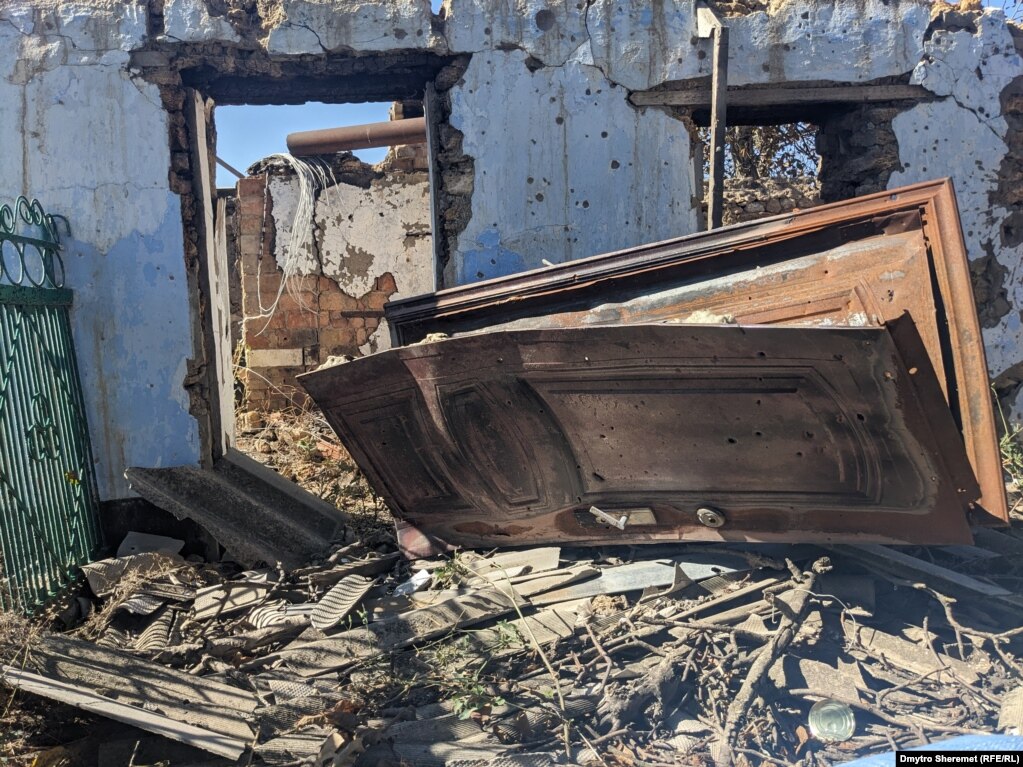
Damaged residential building in Blahodatne settlement, Pervomaysk community in Mykolaiv region.
How IMPACT informs an evidence-based humanitarian response, a case study from the South of Ukraine
Since the Russian Federation’s full-scale invasion of Ukraine on 24 February 2022, the war has continued to escalate leaving over 14.6 million people – about 40 per cent of the Ukrainian population living in Ukraine – in need of humanitarian assistance.
To assess humanitarian needs and their severity in frontline areas and to inform the humanitarian response, IMPACT – through its initiative REACH – conducted Humanitarian Situation Monitoring (HSM) in Mykolaivska Oblast in the south of Ukraine in August-September 2023. After eight months outside of the control of the Government of Ukraine (GoU), the village of Blahodatne, along with other villages in this oblast, are now back under the GoU control but remain within 30 kilometres proximity to the frontline. Assessing the humanitarian situation in this region, where there was no visibility or support for more than half a year, is thus crucial to shed some light on the possible needs of the population – which were found to be further increasing with the winter approaching.
Indeed, during the winter season, wood and gas were found to be the main sources of energy used for heating. Notably, no gas supply disruptions were reported, but in Blahodatne, damaged or destroyed heating systems, lack of money, no fuel stock, and no heating devices were reported by key informants as the main barriers to accessing heating. Most people in this village reportedly could not access safe and adequate housing in the 14 days prior to data collection, mainly because of the damage to housing and shelter (being so close to the frontlines) – making them more vulnerable during low winter temperatures. In addition, regular disruptions to electricity or water supply were reported – creating an overall demand for humanitarian support to address basic needs.
Upon finishing the assessment, its findings were presented to multiple partners during the OCHA-led General Coordination Meeting in Mykolaiv. The Ukrainian NGO “The 10th April”, and Solidarites International, were present at the meeting and subsequently organised field visits to respond to the reported needs – showing the link between data and humanitarian response.
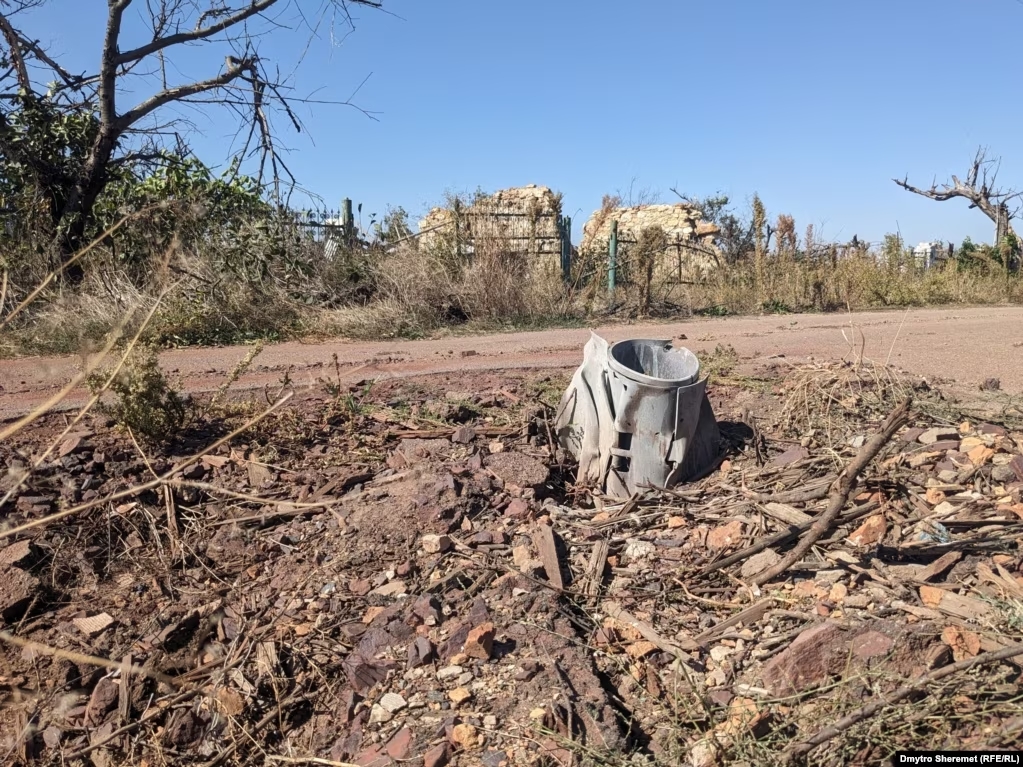
Blahodatne settlement, Pervomaysk community in Mykolaiv region.
| The residents have problems with everything. The destruction has been massive, and we sent our shelter team, yet we were not able to fix the destruction. There were problems with access to medicine and education, even the transport issues – Hanna Kosiak, the head of The 10th April NGO in Mykolaivska Oblast. |
In addition, and still based on the assessment’s findings, The 10th April NGO involved a partner organisation to support residents of Blahodatne village with the social taxi, a service offering free transportation from the settlement to and from the ration centre. This service enabled people’s access to different social services and aid since most people in Blahodatne reportedly had no access to non-food items and that healthcare facilities and pharmacies were too far away for them to access. The organisation also provided legal consultations. Similarly, Solidarités International, focusing on rural areas, distributed briquettes as a response to winterization needs.
| What we saw (on the ground) confirmed REACH information. It was a very vulnerable settlement with very few people, and it was forgotten by other actors. – Maeva Hegoburu, Deputy Field Coordinator for Programs, South Base at Solidarites International. |
For more information on the situation across Ukraine, and to have another example on what data IMPACT collects to support its partner, you can consult the 2023 Multi-Sector Needs Assessment (MSNA).
To support humanitarian organisations in evidence-based decision-making, REACH developed a report entitled “Preparing for Cold Months: Winterisation response from local perspectives” with key lessons from the 2022/23 winterisation response, reported by key informants and covering seven of the most vulnerable ‘cold spots’ in Ukraine. Some of these key lessons included:
- the need for flexible, rapid response to emergency outages to prevent further heat and water network failures;
- the importance of close communication between humanitarian actors and local actors;
- the swift deployment of heating points; and
- and transitioning to decentralised heat and power sources where appropriate.
These lessons continue to be relevant for frontline communities such as Blahodatne, as the winter season continues and needs persist.
Photo Credit: Dmytro Sheremet / RFE/RL





